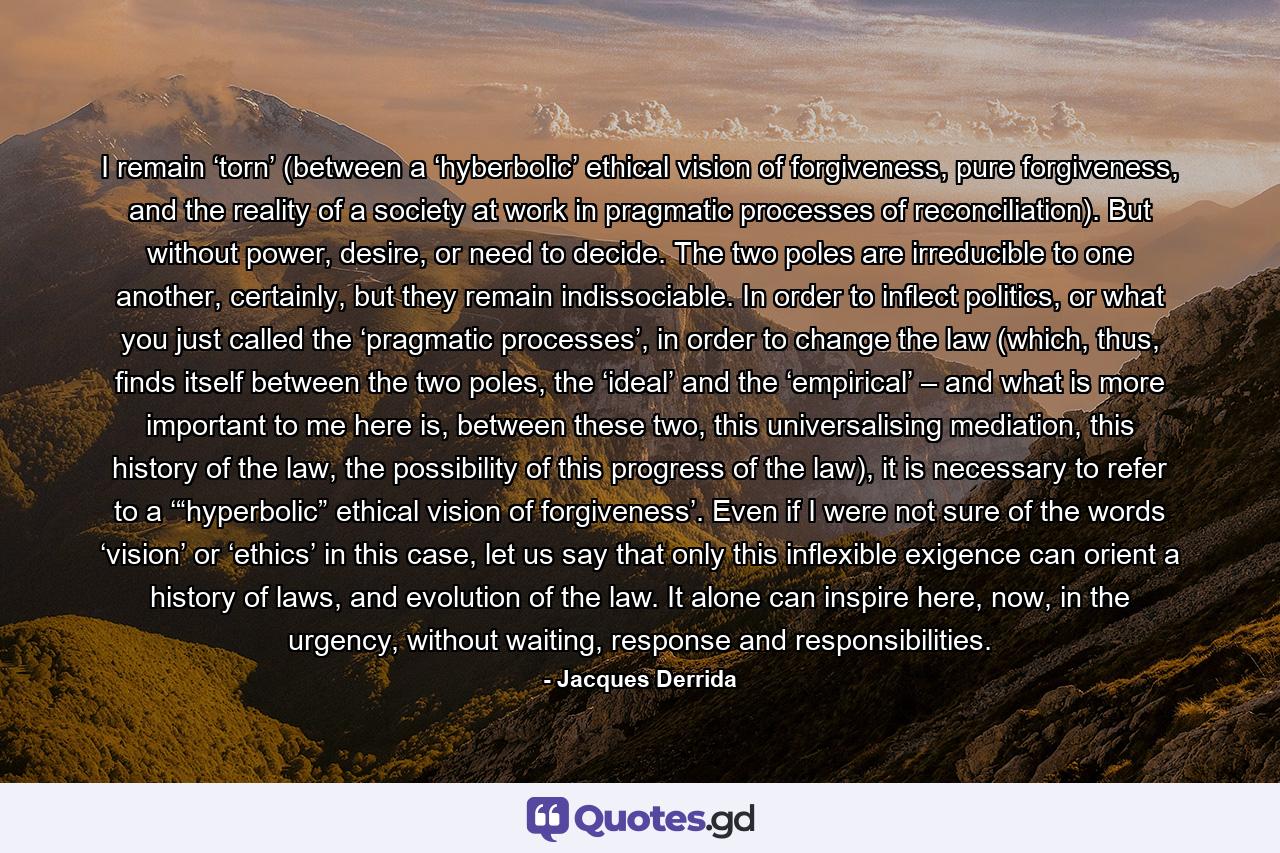I remain ‘torn’ (between a ‘hyberbolic’ ethical vision of forgiveness, pure forgiveness, and the reality of a society at work in pragmatic processes of reconciliation). But without power, desire, or need to decide. The two poles are irreducible to one another, certainly, but they remain indissociable. In order to inflect politics, or what you just called the ‘pragmatic processes’, in order to change the law (which, thus, finds itself between the two poles, the ‘ideal’ and the ‘empirical’ – and what is more important to me here is, between these two, this universalising mediation, this history of the law, the possibility of this progress of the law), it is necessary to refer to a ‘“hyperbolic” ethical vision of forgiveness’. Even if I were not sure of the words ‘vision’ or ‘ethics’ in this case, let us say that only this inflexible exigence can orient a history of laws, and evolution of the law. It alone can inspire here, now, in the urgency, without waiting, response and responsibilities.
